Caroline Barlow, headteacher at Heathfield Community College, and vice chair of Headteachers’ Roundtable, tells Jess Staufenberg about the power of collaboration, and the importance of gathering experience slowly
When Schools Week asked eduTwitter to recommend headteachers running local authority schools to feature, one name kept coming up: Caroline Barlow, head at Heathfield Community College in east Sussex.
It’s little wonder. Known for strong student outcomes and staff retention rates, Barlow’s school has been featured in The Teacher Gap, by Becky Allen and Sam Sims, and The Learning Rainforest, by Tom Sherrington.
She served as chair of East Sussex Secondary Heads for five years and coordinated its school funding cut campaigns. In June last year, Barlow became vice chair of the Headteachers’ Roundtable (HTRT) think-tank.
Despite her national status now, her road to the top job was more the tortoise than the hare approach. She qualified as a teacher in 1992 and became a headteacher six and a half years ago.
“I took my time,” says Barlow “I did every job along the way to reach headship. I was in senior leadership roles for 14 years! I stand in polar opposite to shooting into headship very quickly.”

Barlow’s core value appears to be the importance of collaborating with others and learning from them. She mentions collaboration no less than 14 times in conversation and seems to genuinely live and breathe it. To that end, she believes in working with people in roles right across school life, something she did before becoming a head.
“What I’ve done at every stage of my career is look for a range of insights and experience and gathered it up along the way.”
Her belief in working with others may explain why she was so irked by comments last year from former academies minister Baroness Berridge in a Schools Week interview: Berridge questioned the “moral purpose” of single-school headteachers and urged them to come out of their “splendid outstanding isolation”.
In response, Barlow asked: “What will prevent networks collaborating within but not between each other, leaving children in the middle of competing tribes?”
Barlow’s comment reflected her concern that collaboration is not properly baked into the system. As the head of a local authority-maintained school her capacity to collaborate is limited. “If the head down the road doesn’t want to collaborate with me, they don’t have to,” she explains.
But academy trusts are not a sure-fire solution either. As she told Berridge, trusts don’t often cooperate with each other. “I worry we will end up in a place where we simply reflect the competition between individual schools across networks of schools.”
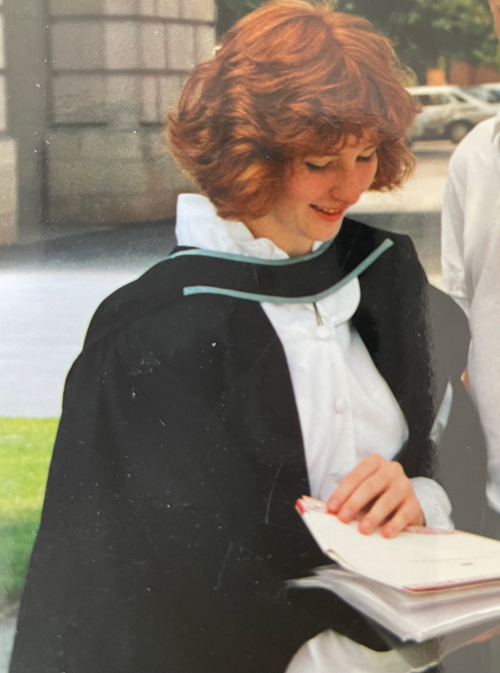
It’s partly why she’s enthusiastic about the HTRT’s new focus this year – amplifying the role of headteachers as “civic leaders” in their community, as demonstrated by the pandemic. It’s “all about building partnerships,” with employers, charities, families, community group, says Barlow.
Her impressive ability to cut to the heart of things may explain why she was invited to join HTRT after just one year in headship. The think tank was set up in 2012 as a non-party political voice to influence government education policy. How does one get onto the roundtable?
“As a female lead of a maintained, rural comprehensive, I probably ticked some boxes!” she laughs. “It’s also about who has the capacity and influence to make a difference.”
As a case in point, Barlow nods to the recruitment and retention policies she helped write in the HTRT’s ‘alternative green paper’ in 2016.
For instance, the government has now accepted that “one way to attract people into the profession is an acceptable starting salary”. Meanwhile she says the importance of “development throughout your career” has been picked up in the national professional qualification reforms.
Similarly, “there no longer appears to be any dispute that education needed additional funding, which there used to be.”
But Barlow’s campaigning against school funding cuts wasn’t without its hiccups. When she tweeted a picture of herself sat beside a cliff in 2018 with the words ‘living on the edge’, it prompted a small media frenzy about irresponsible headteachers. ‘risky behaviour’” and ‘selfie culture’.
“That comment was a direct comment about the school funding situation at the time”, says Barlow, shaking her head. “My timeline is all education leaders and teachers and they would have understood.”
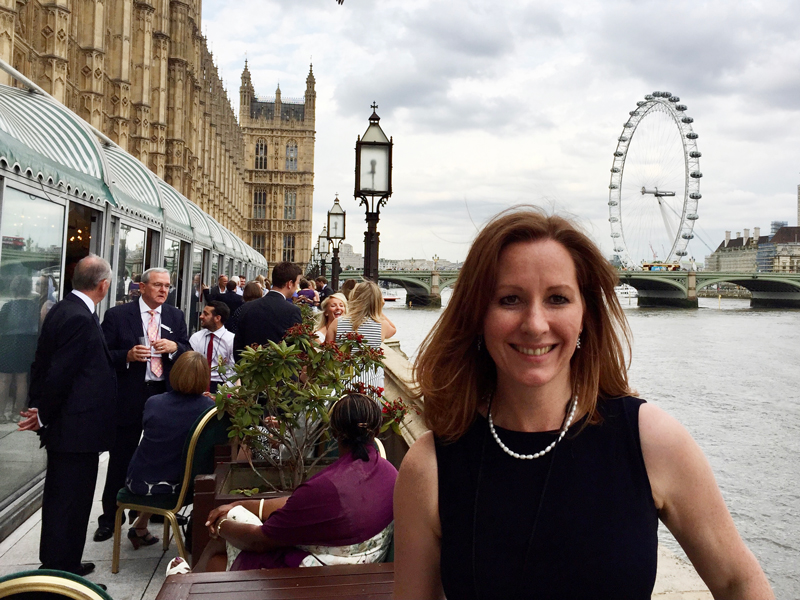
Support from others helped her maintain perspective. “I’ve still got a folder of emails somewhere saying, ‘this is ridiculous!’” She managed to hold onto her self-belief and pull through.
More successful on Twitter was the HTRT’s #pauseOfsted campaign, which gained traction in 2020 before the pandemic hit. So what’s happening now?
Barlow is admirably frank. “I wasn’t a massive signup for that. ‘Pause’ was the right language, rather than remove, but I believe in evolving from within.”
You can see how important a drive for high standards is for her.
Alongside her drive for high standards, Barlow says she’s motivated to build schools that foster self-belief in their pupils. She cites her own experience as a child, where being advocated for was not always available at home in rural Worcestershire. She
doesn’t want to expand on details, but her relationship with her dad was not an easy one.
“I would describe my upbringing as difficult, which would be a motivating factor in terms of my philosophy on education. It’s partly a reflection of what I needed at the time, which was someone who showed beliefs in my abilities, at a point where it was being very much undermined.”
At the time, her school failed to spot any red flags, but inspirational staff showed her an escape route.
Her history teachers, Mr Laverty and Mr Krier, and a hockey coach, Jane Powell, each “cultivated my love of history, my love of learning, and my self-confidence”.
Afterwards, Barlow headed to the University of Birmingham to study history, followed by a PGCE. She then taught in and around the city for a decade.
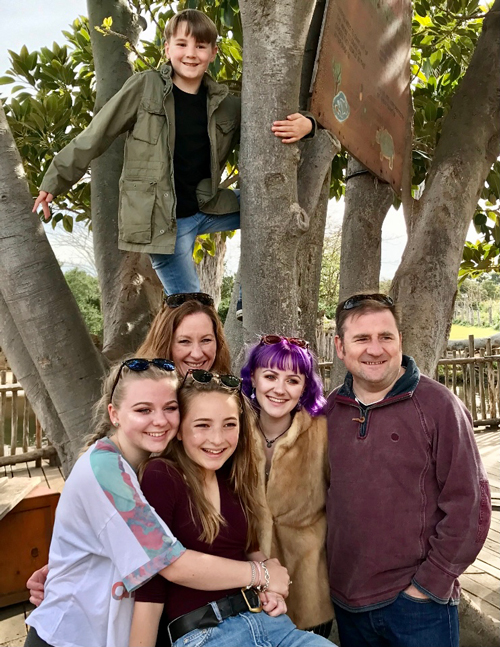
It was here that Barlow began gathering experience on the many roles that make up school life. After a pastoral role and head of history role in Birmingham, she moved down south with her then-husband to The Matthew Arnold School in Staines, taking on the teaching, learning and curriculum portfolio. Because of a shorter commute, she then joined Weald Community School in west Sussex, as assistant head overseeing exams and data.
This was “incredibly different to leading pastorally”, but “seeing how the school was led in each remit” was very valuable.
These two focuses – attainment and pastoral care – are now at the core of her leadership. “It’s a combination of that relentless focus for excellence, but I won’t go there if it requires a compromise on culture, and compassion in how we treat staff and students.
“Having experienced all those roles, it does equip me better not to compromise on one or the other.”
So how did she find the confidence to apply for headship at Heathfield Community College?
“My marriage broke down, and I would say ironically that in itself was one of the most empowering things… Leaving that probably gave me the sense of purpose that I could hold my head high.”
She then met her partner of 13 years, Adam, also a headteacher. “It makes such a difference when you are with someone who genuinely believes in you,” she smiles.

A big opportunity presented itself in 2014, when Barlow was selected by membership organisation The Schools, Students and Teachers network (SSAT) for a one-year secondment role as head of innovation.
She travelled the country clutching evidence from researchers such as Dylan Williams and Professor Bill Lucas, to find out “how that was being adapted in schools”. “It was an early example of recognising the importance of research-informed practice.”
Everything came across Barlow’s path: curriculum design at St Mary’s Catholic Academy in Blackpool, led by former HTRT chair Stephen Tierney, for example, and to immersive language learning at Bohunt School in Hampshire.
By September 2015, she’d landed the headship at ‘good’-rated Heathfield Community College. But she wasn’t satisfied. “In a school like ours, coasting and complacency is the danger.”
And it’s not gone unnoticed. The school was rated ‘good’ again in 2020, but inspectors said it “could be judged outstanding” if a longer inspection was carried out.
Barlow perhaps represents the power of a slower ascent to leadership. By reflecting on extensive experience along the way, she seems to have been a triply powerful leader on arrival. Here’s to more civic leaders like her, working more closely together.







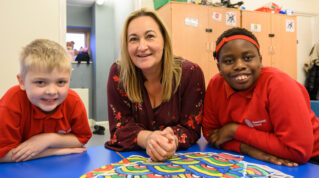
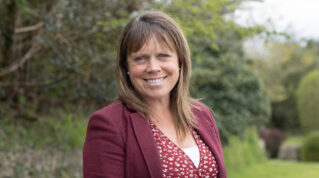
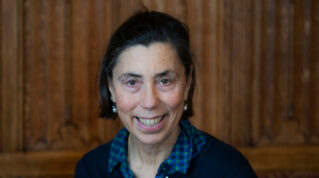
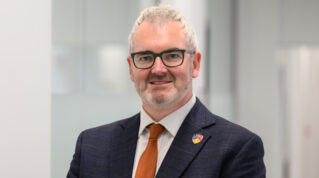
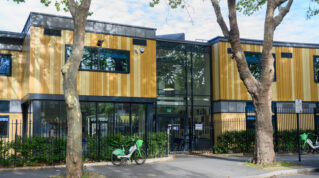


Your thoughts